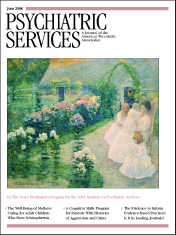Voted one of Time magazine's five best books of the year in fiction and winner of the Winship/PEN Award, You Are Not a Stranger Here is a group of powerful short stories, each dealing with some manifestation of mental illness and its effects on others.
In the first story, the reader is caught up in a spiraling manic episode so vividly depicted that it evokes the colors of a brain scan. A bipolar father spews forth a torrent of feverish plans while making public scenes and running up huge hotel and restaurant bills that cannot be paid. His son wearily tries to divert him, fully aware of his own powerlessness to stem the tide, and terrified of his own bipolar symptoms. On each side, recollections of tender childhood moments and mutual love highlight the tragedy of a relationship splintered by illness.
Each subsequent story reflects an interaction with a startling core of truth. A woman who has survived trauma and profound personal losses reduces a young psychiatrist to an insensitive neophyte when he keeps insisting that her history requires talk therapy to supplement her medications. Frustrated by merely prescribing in a rural clinic, the psychiatrist is anxious to try his hand at psychotherapy, while the patient is convinced that talking with an inexperienced therapist cannot ameliorate—and may intensify—the tragic memories in her life. This story is a beautiful counterposition of conflicting patient-therapist motivations and needs.
The palliative relief of self-inflicted pain pervades a story of two teenagers, simultaneously struggling with homosexual feelings and parental loss, who try to alleviate their anguish through mutual violence. In another story, the long-ranging effects of a mother's suicide are manifested in the stunted lives of two siblings. Having survived through mutual reliance, in later life they sabotage each other's loves in order to stay together. In still another narrative, a clinically depressed man performs a final redemptive act before consummating the suicide that will release his wife from the burden of his illness and himself from the burden of her love.
In a unique voice, each of these stories reaches deep into the psyches of people suffering different types of pain. But the stories also feature creative strategies used to cope with recognizable diagnoses. In a particularly interesting story, a young man with bipolar disorder conducts audiotaped interviews with relatives and friends about their interest in philosophy. His probing questions are meant to help him understand his own malaise, "to figure out the relationship between the desire for theoretical knowledge and certain kinds of despair." Although the project is given the grandiose title of "anecdotal sociology research" and conducted during a hypomanic phase, the reader will be astonished by the revelations and insights that come out in the interviews.
Throughout the book, psychiatric treatment is often part of the background. Some characters have participated in repeated, redundant interviews in mental health facilities, or psychotherapy that has proved ineffectual in addressing their angst. But many are depicted with a unique self-destructive bent, their interactions with clinicians or school counselors shaded by a wall of resistance. Their coping strategies are recognizably maladaptive: oppositionalism, resignation, or purposeful suppression. Some alleviate pain with intoxicants, self-mutilation, or violence. When offered help, they dissemble and withhold. They divert and trivialize. Their helpers aren't given a clue.
Mental health professionals can learn much from these stories about the motivations and resistances of patients with treatment-refractory illness and the undisclosed human tragedies that are often hidden behind their facades. But the contents also focus on the interactive spin-off of mental illness, its immediate and long-range impact on others, and how the aftershock can make patients out of loved ones. Fiction can be a great enlightener, and these narratives provide wonderful insights into the many ways that human pain and its defenses can be internally experienced and behaviorally expressed. Beautifully written and intrinsically fascinating, this book would be particularly valuable for young residents just beginning to comprehend the living experience of mental illness.

